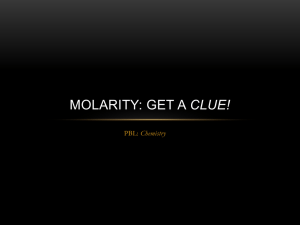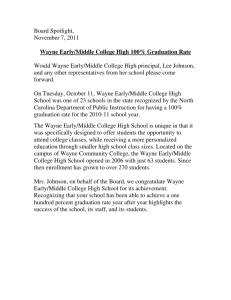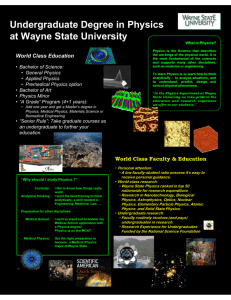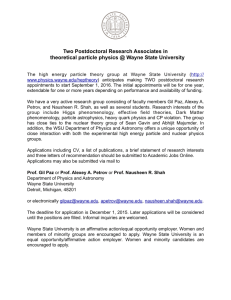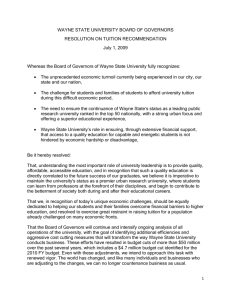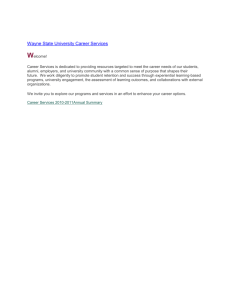AMY M. BODDY
advertisement
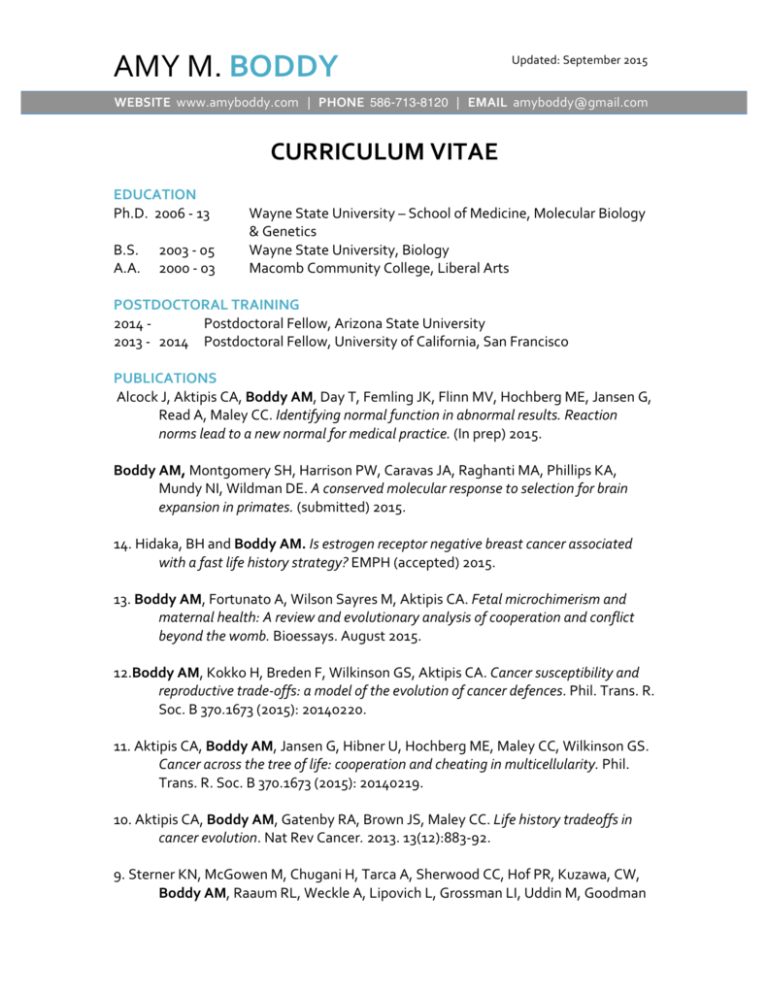
AMY M. BODDY Updated: September 2015 WEBSITE www.amyboddy.com | PHONE 586-713-8120 | EMAIL amyboddy@gmail.com CURRICULUM VITAE EDUCATION Ph.D. 2006 -­‐ 13 Wayne State University – School of Medicine, Molecular Biology & Genetics Wayne State University, Biology Macomb Community College, Liberal Arts B.S. 2003 -­‐ 05 A.A. 2000 -­‐ 03 POSTDOCTORAL TRAINING 2014 -­‐ Postdoctoral Fellow, Arizona State University 2013 -­‐ 2014 Postdoctoral Fellow, University of California, San Francisco PUBLICATIONS Alcock J, Aktipis CA, Boddy AM, Day T, Femling JK, Flinn MV, Hochberg ME, Jansen G, Read A, Maley CC. Identifying normal function in abnormal results. Reaction norms lead to a new normal for medical practice. (In prep) 2015. Boddy AM, Montgomery SH, Harrison PW, Caravas JA, Raghanti MA, Phillips KA, Mundy NI, Wildman DE. A conserved molecular response to selection for brain expansion in primates. (submitted) 2015. 14. Hidaka, BH and Boddy AM. Is estrogen receptor negative breast cancer associated with a fast life history strategy? EMPH (accepted) 2015. 13. Boddy AM, Fortunato A, Wilson Sayres M, Aktipis CA. Fetal microchimerism and maternal health: A review and evolutionary analysis of cooperation and conflict beyond the womb. Bioessays. August 2015. 12.Boddy AM, Kokko H, Breden F, Wilkinson GS, Aktipis CA. Cancer susceptibility and reproductive trade-­‐offs: a model of the evolution of cancer defences. Phil. Trans. R. Soc. B 370.1673 (2015): 20140220. 11. Aktipis CA, Boddy AM, Jansen G, Hibner U, Hochberg ME, Maley CC, Wilkinson GS. Cancer across the tree of life: cooperation and cheating in multicellularity. Phil. Trans. R. Soc. B 370.1673 (2015): 20140219. 10. Aktipis CA, Boddy AM, Gatenby RA, Brown JS, Maley CC. Life history tradeoffs in cancer evolution. Nat Rev Cancer. 2013. 13(12):883-­‐92. 9. Sterner KN, McGowen M, Chugani H, Tarca A, Sherwood CC, Hof PR, Kuzawa, CW, Boddy AM, Raaum RL, Weckle A, Lipovich L, Grossman LI, Uddin M, Goodman AMY M. BODDY amyboddy@gmail.com M, Wildman DE. Characterization of human cortical gene expression in relation to glucose utilization. Am J Hum Biol. 2013. 25(3):418-­‐30. 8. Sterner KN, Chugani HT, Tarca AL, Sherwood CC, Hof PR, Kuzawa CW, Boddy AM, Raaum RL, Weckle A, Gregoire L, Lipovich L, Grossman LI, Uddin M, Goodman M, Wildman DE. Dynamic gene expression in the human cerebral cortex distinguishes children from adults. PLoS ONE. 2012. 7(5):e37714. 7. Boddy AM, McGowen MR, Sherwood CC, Grossman LI, Goodman M, Wildman DE. Comparative analysis of encephalization in mammals reveals relaxed constraints on anthropoid primate and cetacean brain scaling. J Evol Biol, 2012. 21(10):981-­‐ 94277. 6. Hinterseher I, Erdman R, Donoso LA, Vrabec TR, Schworer CM, Lillvis JH, Boddy AM, Derr K, Golden A, Bowen WD, Gatalica Z, Tapinos N, Elmore JR, Franklin DP, Gray JL, Garvin RP, Gerhard GS, Carey DJ, Tromp G, Kuivaniemi H. The role of complement cascade in abdominal aortic aneurysms. Arterioscler Thromb Vasc Biol. 2011. 31(7):1653-­‐60. 5. Sherwood CC, Raghanti MA, Stimpson CD, Spocter MA, Uddin M, Boddy AM, Wildman DE, Bonar CJ, Lewandowski AH, Philips KA, Erwin JM, Hof PR. Inhibitory interneurons of the human prefrontal cortex display conserved evolution of the phenotype and related genes. Proc. R. Soc. B, 2010. 277(1684):1011-­‐20. 4. Nischan J, Lenk GM, Boddy AM, Lillvis JH, Tromp G, Kuivaniemi H. Abdominal aortic aneurysms – a complex genetic disease. In: Aneurysms: Types, Risks, Formation and Treatment, Nova Science Publishers, Inc., Hauppauge, NY. E Morel E and Laurent A, eds. 2009. 3. Elmore JR, Obmann MA, Kuivaniemi H, Tromp G, Gerhard GS, Franklin DP, Boddy AM, Carey DJ. Identification of a genetic variant associated with abdominal aortic aneurysms on chromosome 3p12.3 by genome wide association. J Vasc Surg. 2009. 49:1525-­‐31. 2. Boddy AM, Lenk GM, Lillvis JH, Nischan J, Kyo Y, Kuivaniemi H. Basic research studies to understand aneurysm disease. Drug News and Perspectives, 2008. 21(3):142-­‐8. 1. Kuivaniemi H, Boddy AM, Lillvis JH, Nischan J, Lenk GM, Tromp G. Abdominal aortic aneurysms are deep, deadly and genetic. In: Aortic Aneurysms, New insights into an old problem. Liege University Press, Liege, Belgium. Sakalihasan N, Kuivaniemi H, and Michel JB, eds. 2008; 299-­‐323. 2 AMY M. BODDY amyboddy@gmail.com FELLOWSHIPS 2012 Wayne State University Provost Fellowship for Computational Biology 2011 Wayne State University Provost Fellowship for Computational Biology ACADEMIC HONORS & AWARDS 2015 Postdoctoral Award Finalist -­‐ Human Behavior and Evolution 2013 -­‐14 Guest in the Cancer Evolution Work Group at The Institute for Advanced Study in Berlin (Wissenschaftskolleg) 2009 Wayne State University School of Medicine Travel Award 2008 Summer Institute in Statistical Genetics -­‐ University of Washington Travel Award 2007 Cold Spring Harbor Travel Award: Clinical Cardiovascular Genomics Conference 2005 Graduated Cum Laude with B.S. from Wayne State University COMMITTEES 2015 Third Biannual Evolution and Cancer Conference, Co-­‐Organizer, University of California San Francisco 2013 Second Biannual Evolution and Cancer Conference, Co-­‐Organizer, University of California San Francisco 2010 Graduate Student Research Day – Chair, Wayne State University School of Medicine 2009 Graduate Student Research Day -­‐ Sponsorship Committee, Wayne State University School of Medicine 2008-­‐09 Summer Undergraduate Research Program -­‐ Co-­‐Chair, Wayne State University School of Medicine TEACHING & MENTOR EXPERIENCE 2015 Undergraduate research mentor: William Walker, Arizona State University, Project: Epidemiology of cancer in primates 2012 Lecturer: Next-­‐Gen Sequencing, Scientific Communications, Wayne State University School of Medicine 2009 Summer Undergraduate Research Director, Wayne State University School of Medicine 2008 High-­‐school research mentor: Disha Bora, Detroit Country High School, Project: SNPs associated with abdominal aortic aneurysms 2008 Summer Undergraduate Research Director, Wayne State University School of Medicine SCIENTIFIC PUBLICITY 2015 Regarding, “Fetal microchimerism and maternal health: A review and evolutionary analysis of cooperation and conflict beyond the womb, Carl Zimmer, New York Times; Viviane Callier, The Smithsonian; Ed Yong, 3 AMY M. BODDY 2015 amyboddy@gmail.com National Geographic; Krisitin Magaldi, Medical Daily; Jimmy Jenkins, KJZZ radio; Michaeleen Doucleff, NPR radio Washington D.C. Regarding “Cancer across the tree of life: cooperation and cheating in multicellularity”, George Johnson, New York Times INVITED LECTURES 2015 Organismality, St. Louis MO Talk: The phylogenetic origins of need-­‐based transfers 2014 School of Biological, Biomedical, and Environmental Sciences, University of Hull, Hull, United Kingdom Talk: Tradeoffs and Cancer CONFERENCE ATTENDED/PRESENTATIONS 2015 American College of Veterinary Surgeons Summit, Nashville, TN Talk: Cancer across life: Cancer susceptibility and the evolution of multicellularity 2015 Conference on Complex Systems, Tempe, AZ Talk: Using agent-­‐based modeling to understand the emergence of resistant cancer phenotypes 2015 Personalized Medicine Conference, Tucson, AZ Poster: Fetal microchimerism and maternal health: A review and evolutionary analysis of cooperation and conflict beyond the womb 2015 Society for Molecular Biology & Evolution, Vienna, Austria Talk: Cancer across the tree of life: Cooperation and cheating in multicellularity 2015 Human Behavior & Evolution, Columbia, MO Talk: Cancer susceptibility and reproductive trade-­‐offs: A model of the evolution of cancer defenses 2015 International Society for Evolution, Medicine, & Public Health, Tempe AZ Talk: Are there trade-­‐offs between reproductive competiveness and cancer susceptibility? 2013 Ecological and Evolutionary Perspectives in Cancer, Jacques Monod Roscoff, France Poster: The quiescent tortoise and the proliferative hare: Life history selection in cancer’s evolutionary race 2013 Human Behavior and Evolution Society, Miami Beach, FL Talk: Do metabolic tradeoffs explain why humans have exceptionally large brains? Testing the expensive tissue hypothesis using phylogenetic analysis 2013 International Biannual Evolution and Cancer Conference, San Francisco, CA 4 AMY M. BODDY 2013 2013 2012 2011 2010 2010 2009 2009 2007 amyboddy@gmail.com Poster: Does early adversity shape disease risk through adaptive calibration of hormonal profiles? Evolutionary life history theory in breast cancer and cardiovascular disease Biological Mechanisms in Evolution, Gordon Research Conferences, Easton, MA. Poster: Does early adversity shape disease risk through adaptive calibration of hormonal profiles? Evolutionary life history theory in breast cancer and cardiovascular disease American Association for Cancer Research, Washington, D.C. Society for Molecular Biology and Evolution, Dublin, IE. Poster: Capuchin monkey transcriptome provides insight into primate brain evolution American Association of Physical Anthropologist, Minneapolis, MN. Talk: Phylogenetic analysis reveals relaxed constraints in primate encephalization during mammalian descent Molecular Medicine Tri-­‐Conference, San Francisco, CA Evolution, Portland, OR. Poster: Phylogenetic analysis explains deviations from Brain: Body Allometric Scaling Laws in Primates and Cetacea American Society of Primatologist, San Diego, CA. Poster: Platyrrhine genomic resources: Shotgun libraries from Pitheciidae, Cebidae, and Atelidae NeuroScience, Chicago, IL. Clinical Cardiovascular Genomics Conference, Cold Springs Harbor, NY. Poster: Genetic studies for abdominal aortic aneurysms: DNA linkage, Microarrays, and Genetics Association PROFESSIONAL DEVELOPMENT 2015 Complex Systems: Networks, Agent-­‐based Models, Information Theory and Maximum Entropy Methods 2015 Netlogo Workshop: Complex Systems -­‐Arizona State University 2014 Complex Adaptive Systems – Arizona State University 2014 Workshop on Cancer Evolution and Evolutionary Medicine: Foundations and Future Directions – Wissenschaftskolleg zu Berlin 2011 National Postdoctoral Association Michigan Regional Symposium, Pathways to Careers -­‐ Wayne State University 2010 Analyzing Next Generation Sequencing Data -­‐ Michigan State University 2010 Applying Next Generation Sequencing Technologies to Research -­‐ Molecular Medicine Tri-­‐Conference Short Course, San Francisco, CA 2010 Career opportunities after doctoral education and postdoctoral training -­‐ Wayne State University 2008 Summer Institute in Statistical Genetics -­‐ University of Washington: Human population genetic data analysis, Human association mapping 5 AMY M. BODDY 2007 amyboddy@gmail.com NCBI Traveling Workshop: GenBank, Molecular Biology Resources, Entrez Gene QuickStart, Correlating Disease Genes and Phenotypes, BLAST QuickStart MEMBERSHIPS 2015 International Society for Evolution, Medicine & Public Health 2013 American Association for Cancer Research 2010 Society for the Study of Evolution 2009 American Society of Primatologists 6
